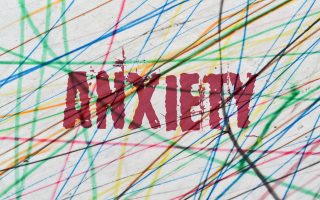
Social media is everywhere, shaping the way we see ourselves and the world around us. While it connects us with others and provides entertainment, it can also be quietly damaging our self-esteem. Without realizing it, we compare ourselves to carefully curated images, chase validation through likes, and absorb unrealistic beauty standards. Over time, this constant exposure can leave us feeling inadequate, anxious, and unworthy. Here are nine ways social media is negatively affecting your self-esteem—often without you even noticing.
1. The Comparison Trap Makes You Feel Like You’re Not Enough
Scrolling through Instagram or TikTok can feel like stepping into a world where everyone is happier, more successful, and better-looking than you. The truth? Most people only post their highlights—filtered vacations, perfectly posed selfies, and major achievements. When you compare your real life to someone else’s curated content, it’s easy to feel like you’re falling behind. This constant comparison can erode your confidence, making you feel like you’ll never measure up. But remember: you’re only seeing a fraction of someone’s reality, not the full picture.
2. Filters and Editing Distort Your Perception of Beauty
Social media is packed with airbrushed skin, slimmed-down waists, and flawless features—all thanks to filters and editing apps. These unrealistic beauty standards make natural imperfections feel like flaws, even though they’re completely normal. The more you’re exposed to altered images, the more your brain starts to believe they’re real. This can lead to body dissatisfaction, low self-worth, and a constant desire to “fix” yourself. The truth? Even the people in those posts don’t look like their photos in real life.
3. Likes and Comments Become a Measure of Your Worth
It feels good to get likes and comments but relying on social media for validation is dangerous. When engagement is low, it can make you feel invisible, unimportant, or even rejected. Over time, you might start posting not because you want to, but because you need external approval to feel good about yourself. Your self-worth should never be tied to a number on a screen. True confidence comes from within, not from online attention.
4. Doomscrolling Fuels Negative Self-Talk
Mindless scrolling often leads to consuming bad news, negativity, and unrealistic content. Whether it’s seeing people with “better” lives or absorbing harmful beauty trends, it can feed a cycle of negative self-talk. You start thinking, Why don’t I look like that? Why am I not more successful? This toxic mental dialogue chips away at self-esteem and makes it harder to appreciate your own unique qualities. If social media leaves you feeling worse, it’s time to set boundaries.
5. FOMO (Fear of Missing Out) Makes You Feel Left Out
Seeing friends, influencers, or celebrities constantly traveling, partying, or achieving milestones can make you feel like your own life is boring in comparison. Even if you were perfectly happy before, FOMO (Fear of Missing Out) tricks your brain into believing you’re missing something important. This can lead to feelings of jealousy, loneliness, and dissatisfaction with your own reality. Social media rarely shows the quiet, everyday moments—yet those are the ones that truly matter.
6. Unrealistic Success Stories Create Pressure to Always Achieve

On social media, success often looks effortless—someone goes viral overnight, lands their dream job, or buys a luxury car at 22. But what’s missing from the picture? The hard work, failures, and struggles behind the scenes. Constant exposure to “success stories” can make you feel like you’re not doing enough or that you’re behind in life. True success isn’t about hitting milestones quickly—it’s about growth, persistence, and creating a life that fulfills you.
7. Overexposure to Social Media Leads to Anxiety and Depression
Studies have shown a strong link between excessive social media use and increased anxiety, depression, and low self-esteem. The more time spent online, the more likely you are to feel isolated, dissatisfied, and mentally exhausted. Seeing perfect lives all day can make you feel like yours isn’t good enough, even when you were content before. Taking breaks, unfollowing negative accounts, and engaging in real-life activities can help protect your mental well-being.
8. Social Media Creates a Fear of Authenticity
The pressure to look perfect online can make you afraid to be your true, unfiltered self. Many people only post what they think others will approve of, leading to a carefully crafted version of their personality. Over time, this can make you feel disconnected from who you really are. But authenticity is what truly attracts genuine connections—the right people will love you for who you are, not who you pretend to be.
9. Time Spent Online Takes Away from Real-Life Happiness
The more time spent scrolling, posting, and checking notifications, the less time you have to enjoy real-life moments. Social media can make you feel constantly distracted, always chasing the next like or update. Instead of being present with loved ones, enjoying hobbies, or exploring the world, your energy gets consumed by an app. Taking control of your time and prioritizing real-life experiences will do wonders for your self-esteem and overall happiness.
Taking Back Your Confidence from Social Media
Social media isn’t all bad—it can be a great tool for connection and creativity. But when it starts affecting your self-esteem, it’s time to set boundaries, unfollow accounts that make you feel inadequate, and focus on real-life happiness.
Have you ever felt like social media was impacting your confidence? Share your experiences in the comments below!
Read More:
The 7 Worst Parenting Mistakes That No One Talks About (But Should)
10 Shocking Ways social media is Fueling Childhood Anxiety

Latrice is a dedicated professional with a rich background in social work, complemented by an Associate Degree in the field. Her journey has been uniquely shaped by the rewarding experience of being a stay-at-home mom to her two children, aged 13 and 5. This role has not only been a testament to her commitment to family but has also provided her with invaluable life lessons and insights.
As a mother, Latrice has embraced the opportunity to educate her children on essential life skills, with a special focus on financial literacy, the nuances of life, and the importance of inner peace.







